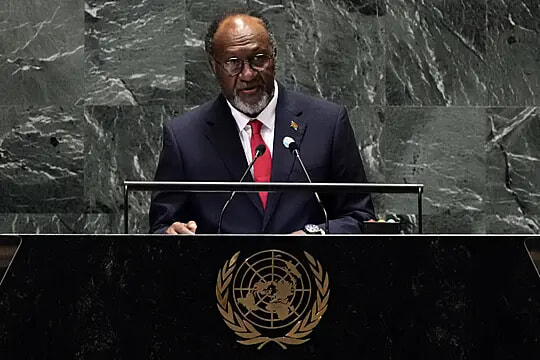
Republicans Shut Down Vote on House Floor to Avoid Releasing Epstein Files
Seriously?
Published July 23, 2025
Advertisement
Advertisement
1. House Shuts Down to Dodge Epstein Showdown
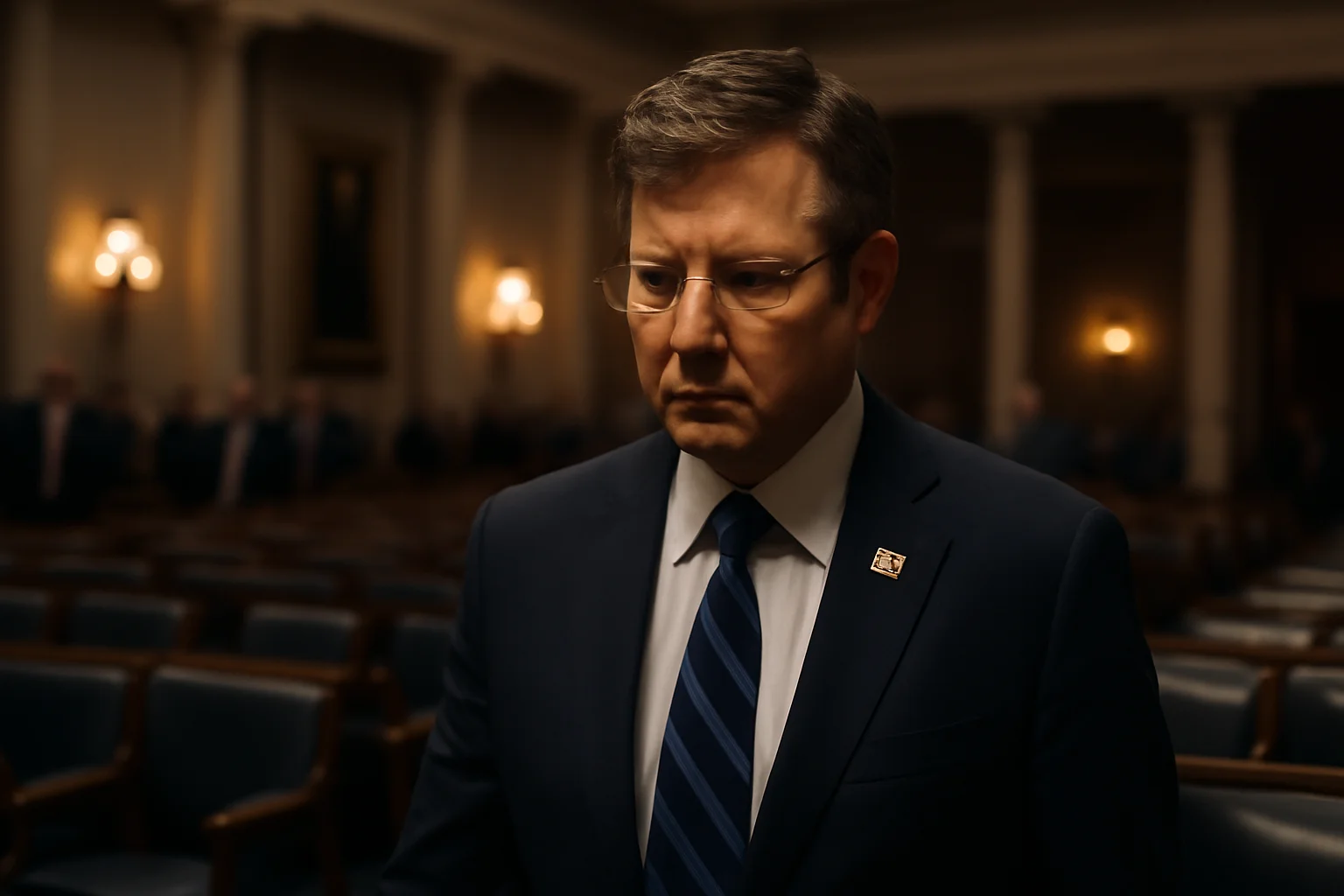
A political storm swept through the House of Representatives as Speaker Mike Johnson abruptly sent lawmakers home early, cutting short a crucial legislative week to avoid votes on releasing Jeffrey Epstein’s files. This dramatic maneuver came as mounting bipartisan pressure demanded a public reckoning with files tied to Epstein’s abuse network, stirring discontent across party lines and igniting demands for transparency from both Republican hardliners and Democrats. Johnson insisted that giving the Trump administration “space” was the responsible course, rejecting the urgency to force the White House’s hand on the issue. A routine week of votes on immigration, environmental bills, and regulatory rollbacks was derailed as the powerful House Rules Committee—under Johnson’s control—was paralyzed by repeated Democratic attempts to bring Epstein-related amendments to the floor. In a rare move, all but one Republican on the Rules Committee voted to adjourn, effectively suspending House business and triggering an early summer recess. The speaker’s decision was an explicit effort to deny Democrats the chance to force procedural votes that might have embarrassed the Trump administration or split the GOP caucus. Outside Congress, calls for the release of the files reached a fever pitch, fueled by voters and right-wing activists who flooded lawmakers’ offices with demands for accountability. Within the chamber, some Republicans accused their own leadership of stalling and “hiding the truth,” deepening the rift inside the party. Democrats seized on the opportunity, framing the GOP retreat as proof of a cover-up to protect the powerful and well-connected. The extraordinary halt left Congress in a rare state of paralysis, amplifying the sense of crisis and pushing the controversy well into the fall. With legislative business on hold, the Epstein cloud cast a shadow that threatened to haunt both parties as election season loomed.
Advertisement
2. A Petition Gains Traction
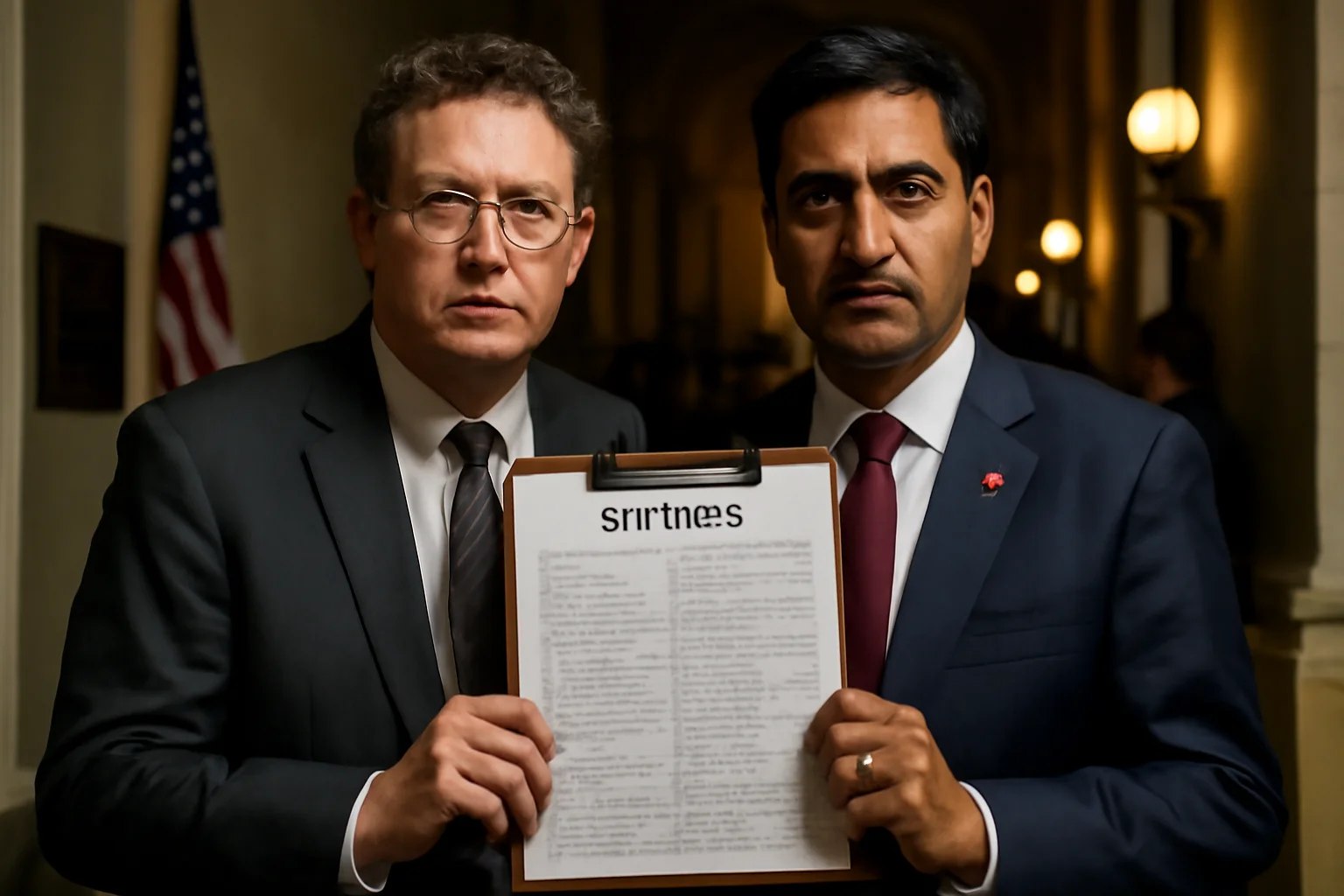
While Speaker Johnson attempted to run out the clock, Kentucky Republican Thomas Massie, joined by Democrat Ro Khanna, launched a discharge petition to force a floor vote on releasing the Epstein records. Discharge petitions are rarely successful but serve as powerful pressure points, threatening to bypass leadership if 218 members sign on. At least 12 House Republicans had joined the effort alongside nearly all Democrats, bringing the possibility of a forced vote closer than ever. If successful, the petition would compel a floor vote on the bill, which requires the release of “all unclassified records, documents, communications, and investigative materials” related to Epstein within 30 days. This includes a list of government officials and politically exposed persons named or referenced in the materials—an explosive demand given recent media revelations implicating powerful figures. For Johnson and Trump, the petition presents a direct challenge to their control of the chamber and could fracture the GOP base. Johnson publicly dismissed Massie’s motives and questioned his strategy, but privately, GOP leaders feared the issue would spiral out of their grasp. Massie described the moment as a “referendum on Johnson’s leadership,” framing it as a choice between justice for victims and shielding the powerful. Democratic Leader Hakeem Jeffries positioned the vote as a test of Republican loyalty—either siding with transparency or protecting elites. The standoff set the stage for a dramatic September, as Congress returned from recess under the shadow of a potential rebellion from within. Even if the petition falls short, its threat alone forced party leaders to reckon with the relentless demand for answers.
Advertisement
3. A Party Divided
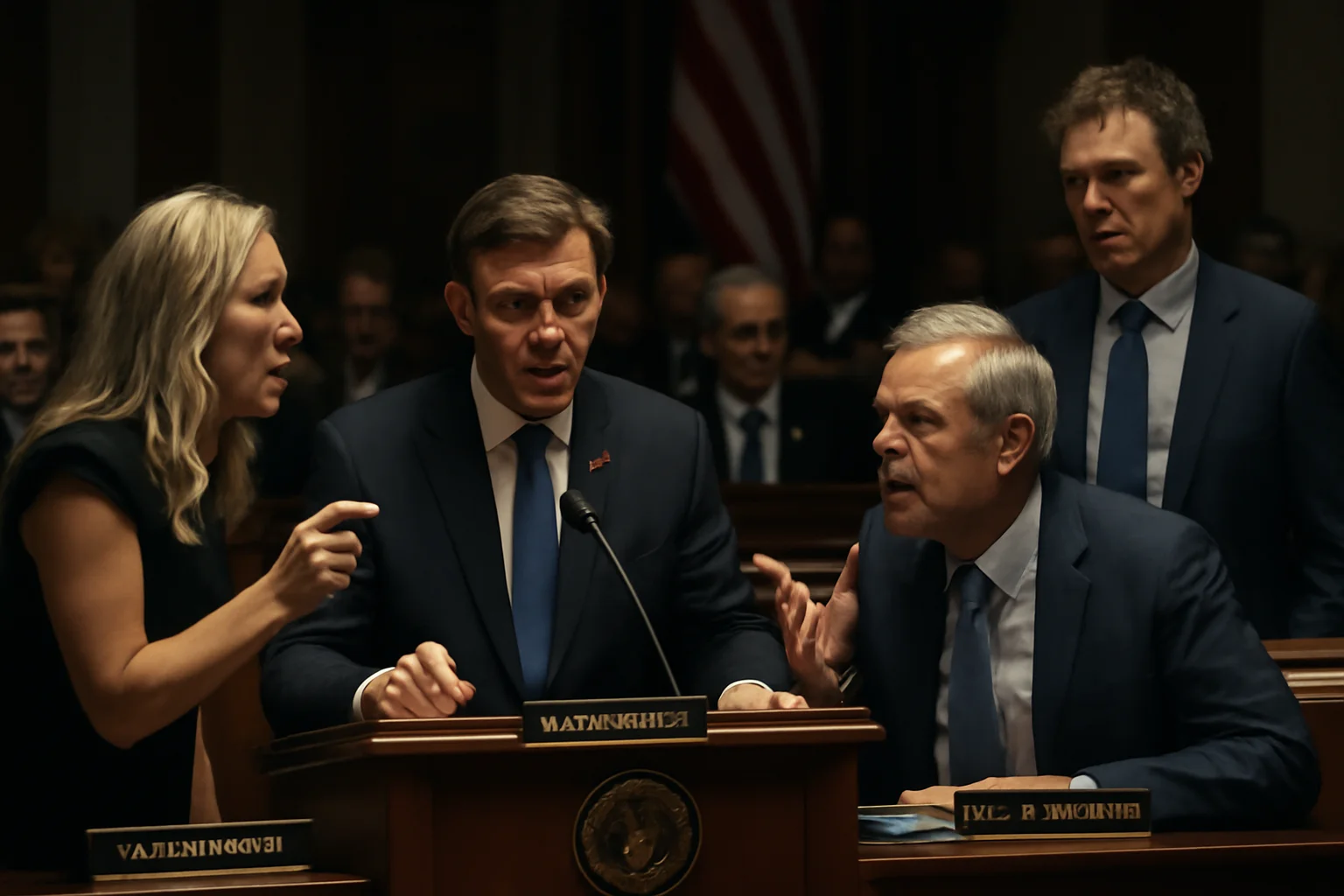
The Epstein controversy exposed deep fault lines inside the Republican Party, pitting Trump loyalists and transparency advocates against party leadership. Johnson and his leadership team scrambled to contain the revolt, even as right-wing firebrands like Marjorie Taylor Greene accused them of “stalling” and betraying their base. Constituent calls poured into lawmakers’ offices, with many demanding action on Epstein above all other issues, signaling the scandal’s grip on the public imagination. Some Republicans, such as Rep. Ralph Norman, publicly criticized their own leaders for avoiding a vote, warning that “the American people deserve action, not excuses.” Others, like Massie, made it clear that the issue would follow each lawmaker into primary races and the midterms, becoming a litmus test for transparency. House business ground to a halt, with frustrated lawmakers lamenting that “we’d rather shut down Congress than vote to release the files.” The episode revealed the limits of Trump’s influence over his own coalition, as even diehard MAGA supporters pressed for full disclosure. Inside the Rules Committee, Republican reluctance to be seen as “helping hide the truth about Epstein” led to repeated adjournments and stalemates. Johnson, caught between pro-Trump hardliners and traditionalists wary of political exposure, found his authority increasingly tested. Democrats reveled in the spectacle, amplifying the discord as evidence of a GOP “protecting the elite, powerful, and well-connected.” With neither side willing to back down, the party’s internal struggle became national news, intensifying the demand for answers.
Advertisement
4. Democrats Seize the Offensive
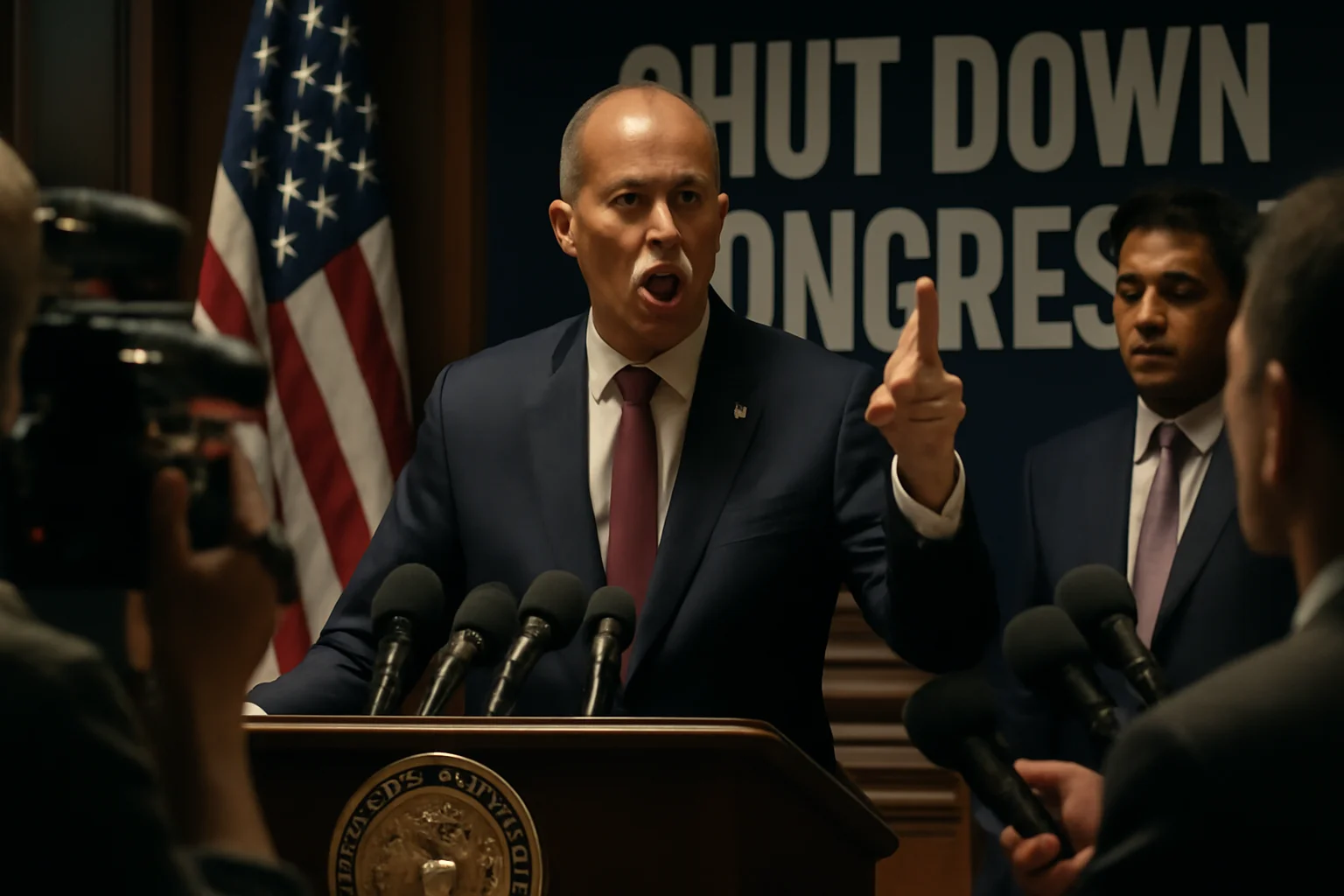
Democrats wasted no time turning the Republican retreat into a political weapon, arguing that the early recess was a cover-up designed to shield Trump and his allies. California Rep. Robert Garcia, the ranking Democrat on the House Oversight Committee, called Johnson’s move proof that “they do whatever Donald Trump tells them to do.” In media interviews and press conferences, Democrats hammered the GOP for “undermining their own agenda” to avoid transparency. House Minority Leader Hakeem Jeffries framed the issue as one of trust in government, insisting that only the full release of Epstein files would restore faith in Congress. On social media and cable news, Democrats pushed the narrative that Republicans had “shut down Congress” rather than risk revealing damaging information. The Rules Committee, once the epicenter of legislative maneuvering, became a battleground for accusations of political gamesmanship and stonewalling. By repeatedly forcing votes and amendments related to Epstein, Democrats increased pressure on wavering Republicans and exposed rifts within the GOP. Rep. Ro Khanna, co-author of the discharge petition, declared the fight about “whose side are you on? Are you protecting men in power or America’s children?” The party’s relentless focus kept the scandal in the headlines, denying Republicans the chance to quietly move past the controversy. As Congress left town, Democratic strategists saw opportunity in public dissatisfaction, preparing to make Epstein a centerpiece of campaign messaging. With polls showing overwhelming public support for more disclosure, Democrats calculated that transparency could be a winning issue in 2026.
Advertisement
5. Trump and Johnson: United, but Cornered

Throughout the crisis, Speaker Johnson maintained that there was “no daylight” between his position and President Trump’s on the Epstein files. Both men insisted they wanted “maximum transparency,” but only at a pace and on terms controlled by the White House. Johnson introduced a non-binding resolution urging the Justice Department to release “certain” Epstein-related documents—an act with no legal force and widely dismissed as a stalling tactic. Trump publicly praised Johnson as “one of the great speakers at any time in history,” solidifying the speaker’s reliance on presidential favor for his political survival. Privately, however, White House officials bristled at continued demands from within the party for faster and broader disclosures. Trump alternated between calling the files a “hoax” and ordering the release of grand jury materials, muddying the administration’s message. Attorney General Pam Bondi moved to unseal some transcripts, but most records remain under lock and key, frustrating both reformers and conspiracy theorists. Trump’s mixed signals left supporters uncertain, fueling further demands for transparency from a base that no longer fully trusts the party line. For Johnson, balancing loyalty to Trump with pressure from his own caucus grew ever more precarious. The episode highlighted how deeply the Epstein scandal has entangled the nation’s most powerful leaders, leaving them boxed in by demands for answers from all sides. United in public, Trump and Johnson nevertheless found themselves increasingly cornered by forces beyond their control.
Advertisement
6. The August Recess Gamble
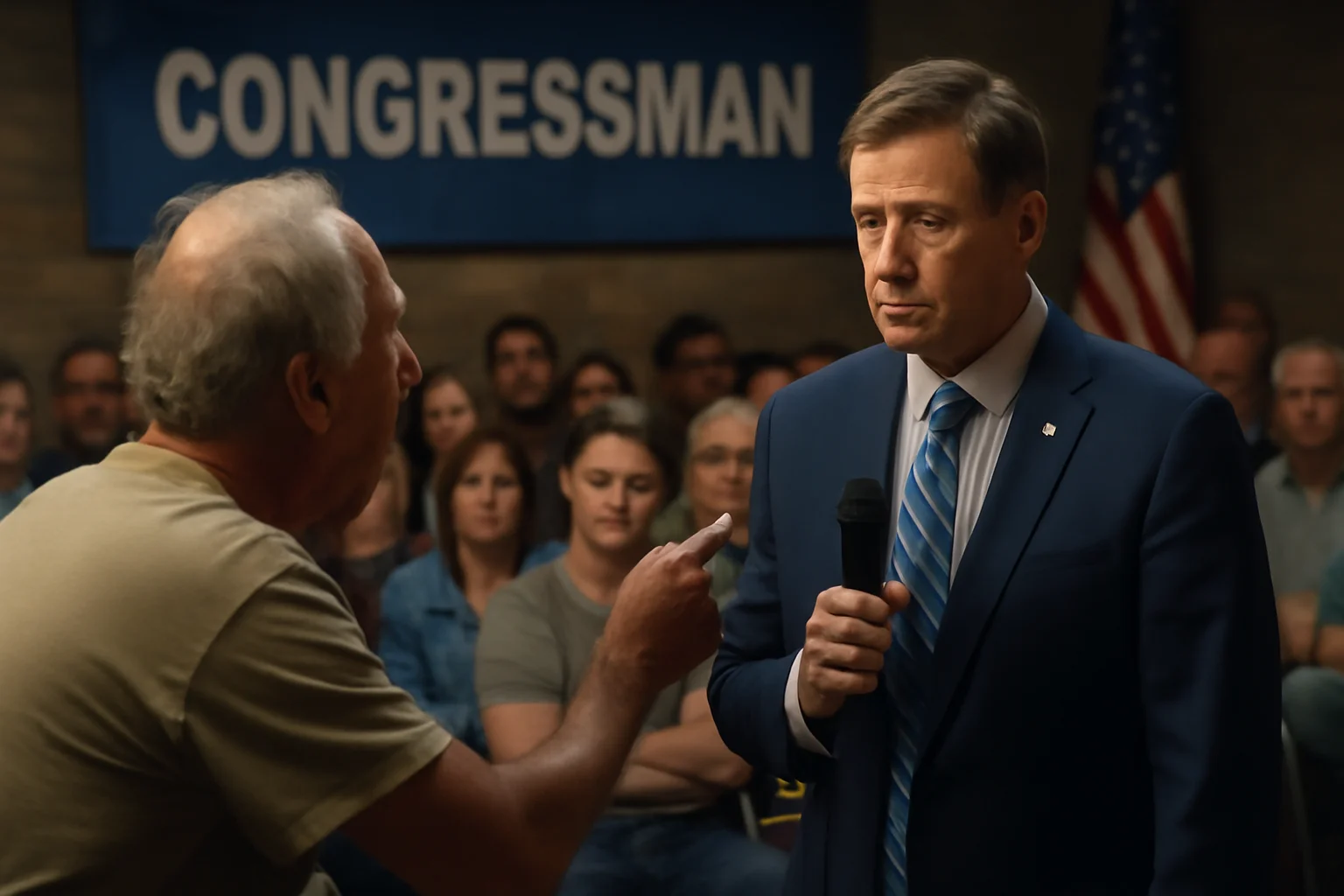
By ending the House session early, Johnson and his allies hoped that time away from Washington would cool tempers and allow the Epstein controversy to fade. Yet history suggests that congressional recesses often inflame controversies rather than quiet them, as lawmakers confront angry constituents in town halls and local media. The most vocal Republicans braced for “tense scenes” back home, recalling how grassroots uprisings have upended the party before. Democratic and independent voters, highly motivated according to recent polling, prepared to press the issue in public forums and campaign events. Republican strategists feared that failure to act would cost them support among their own base, many of whom viewed transparency as a litmus test. Activists warned that the Epstein saga, like a “zombie from The Walking Dead,” would keep resurfacing until real action was taken. The prolonged break only amplified public frustration, with even some Trump loyalists acknowledging the issue’s power to “follow Republicans through the midterms.” By September, the discharge petition and a possible floor vote loomed as a reckoning for party leaders trying to walk a tightrope. The gamble to “let things die down” risked backfiring, as momentum for disclosure showed no signs of dissipating. Each day of inaction fueled suspicion, with critics accusing the House of “protecting the swamp” rather than draining it. The summer recess became less a respite and more a crucible, testing the limits of political patience and public trust.
Advertisement
7. Subpoena Drama: Maxwell in the Spotlight

Even as the House adjourned, the Oversight Committee advanced a resolution to subpoena Ghislaine Maxwell, Epstein’s convicted accomplice, for a deposition. Committee Chair James Comer signaled willingness to negotiate with Maxwell’s attorney, suggesting testimony might occur at the prison where she’s serving her sentence. Justice Department officials also indicated a separate effort to interview Maxwell, adding a new layer to the legal drama. Democrats cautioned that Maxwell’s statements should be viewed skeptically, given her history of deception and harm to victims. Republican Rep. Tim Burchett, a transparency advocate, led the charge for the subpoena, while others worried Maxwell would “barter for something,” such as a pardon. The move kept the spotlight on the Epstein scandal even as lawmakers scattered, fueling speculation about what, if anything, Maxwell might reveal. For investigators and journalists, Maxwell’s potential deposition represents a tantalizing but uncertain prospect in the broader search for accountability. Both parties recognized the limitations of relying on a single witness, especially one with deep incentives to protect herself. The committee’s action underscored how the demand for answers had shifted from courtrooms to Congress, with lawmakers jockeying for control of the narrative. Whether or not Maxwell ever testifies, her presence in the headlines keeps the Epstein story alive—and the pressure on leaders at a boiling point. With every new subpoena and maneuver, the lines between politics, justice, and spectacle continued to blur.
Advertisement
8. The Voters’ Fury

Outside the Beltway, the Epstein controversy resonated with a public already skeptical of government transparency and elite accountability. Polls showed just 3% of Americans satisfied with the government’s release of Epstein information, with a majority expressing deep dissatisfaction. For weeks, congressional offices were inundated with calls and emails demanding action, making Epstein the dominant issue in some districts. Republicans felt the heat from their own voters, especially those aligned with the MAGA base, who saw transparency as a matter of justice, not partisanship. Town halls, social media campaigns, and activist events amplified grassroots anger, ensuring lawmakers could not escape the controversy. Some strategists warned that ignoring public sentiment would fuel further alienation and risk primary challenges from insurgent candidates. Democrats, meanwhile, saw a political opening, eager to frame Republicans as complicit in a cover-up and out of step with the national mood. The media played a central role, with relentless coverage keeping the pressure high and fueling conspiracy theories on all sides. Even lawmakers who preferred to “keep their powder dry” were forced to take positions, lest they be seen as part of the problem. As the summer wore on, the issue of Epstein’s files became a proxy for larger debates over trust, truth, and accountability in American life. With the midterms on the horizon, few politicians could afford to remain silent as voters demanded answers.
Advertisement
9. The Stakes for 2026

The decision to adjourn rather than confront the Epstein files head-on set the stage for a contentious campaign season. For Republicans, the scandal threatened to become a central theme of primary and general election contests, with challengers ready to exploit any sign of weakness on transparency. House leadership, wary of fracturing the caucus or alienating Trump, faced a near-impossible task of reconciling competing demands. Democrats, emboldened by polling and public sentiment, planned to tie Republican incumbents to the controversy in ads and debates. Grassroots organizations on both sides prepared to mobilize supporters around the demand for disclosure, making Epstein a litmus test for broader questions of justice and reform. Analysts predicted that the issue would “haunt both parties,” refusing to fade even as new headlines emerged. Journalists continued to dig into the story, uncovering fresh details and keeping pressure on officials to respond. Legal experts warned that continued secrecy would only deepen mistrust in the justice system and fuel suspicions of corruption at the highest levels. Some in Congress floated legislative fixes to require future transparency in cases involving elite wrongdoing. With each passing week, the cost of inaction rose, sharpening the dilemma facing House leaders. The fate of the Epstein files—and the political fortunes of those entangled in the debate—would hinge on decisions made in the coming months.
Advertisement
10. A Reckoning Deferred
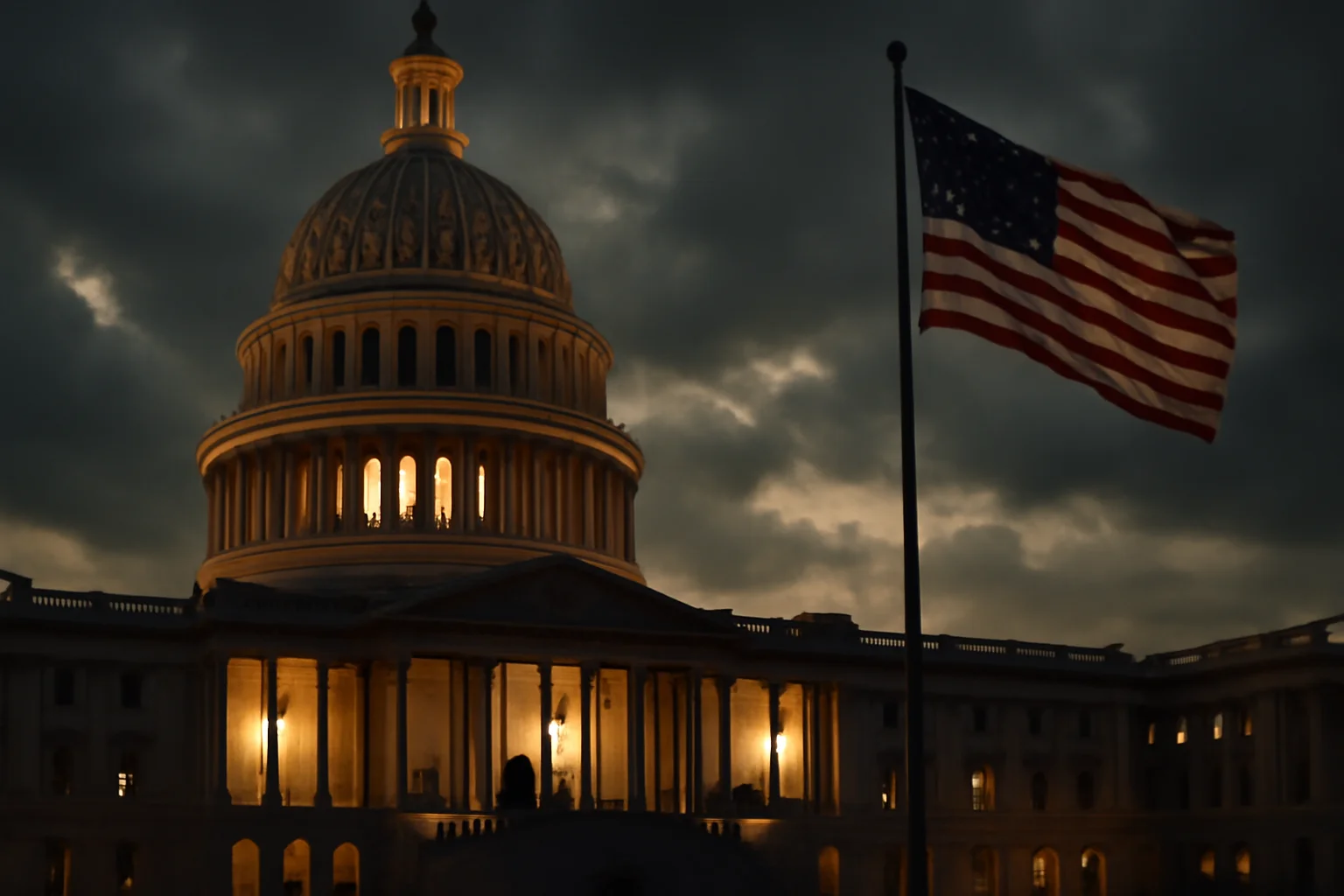
As Congress left Washington for a summer break, the Epstein controversy remained unresolved, its grip on national politics unbroken. Speaker Johnson’s gamble to adjourn rather than confront the issue offered only a temporary reprieve, as forces inside and outside the Capitol gathered strength. The discharge petition, the Maxwell subpoena, and relentless public pressure all pointed to a September showdown that could redefine party loyalties and leadership futures. For President Trump and his allies, the question of transparency versus damage control remained fraught with risk. For Democrats, the issue presented an ongoing opportunity to paint Republicans as guardians of secrecy and privilege. For voters, the affair became a litmus test of whether the system could ever deliver justice for the victims of Epstein’s crimes. At its heart, the standoff over the files was about more than documents—it was a test of accountability, credibility, and the willingness of leaders to confront uncomfortable truths. The months ahead would reveal whether Congress had the courage to face the demands of history, or whether this reckoning, like so many before, would once again be deferred. With every day of delay, the cost to trust in government grew higher, as Americans watched, waited, and wondered what secrets still remained in the shadows. The Epstein files, and the political turmoil they unleashed, had become a mirror for the nation’s deepest anxieties—and a reminder that some questions cannot be buried by recess or rhetoric. Whether or not the files are ever fully revealed, the demand for justice is certain to echo far beyond the halls of Congress.
Advertisement
Advertisement
You May Also Like
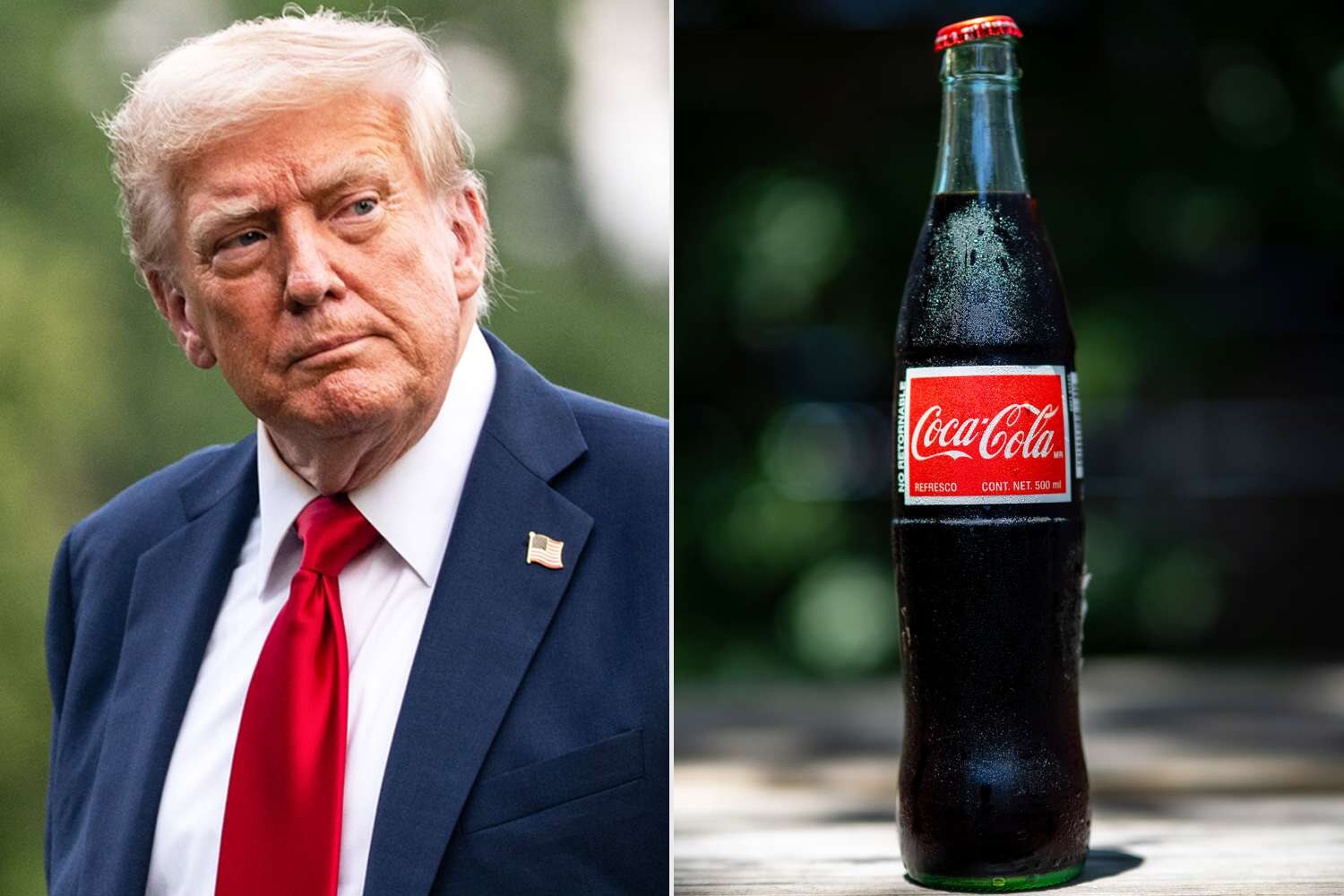
Coca-Cola Will Launch a Version of Coke With Cane Sugar in the U.S. This Fall
That's pretty good, right?

Shia LaBeouf and FKA Twigs Reach Settlement in Sexual Assault and Battery Lawsuit
This was still going on?


